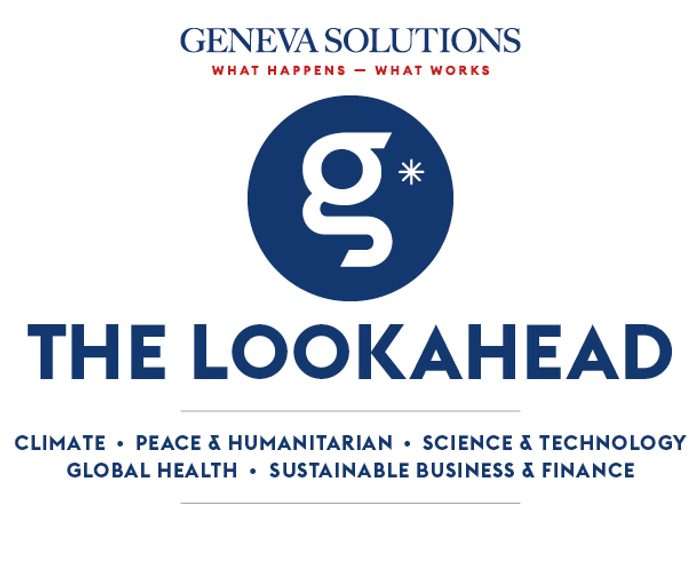Good morning, this is Michelle. This week the Red Cross is set to hold its most important gathering. Held every four years, the meeting is aimed at advancing humanitarian action worldwide with the support from states. But amid heightened geopolitical tensions, can the conference steer clear of politics?
Elsewhere, states continue crucial deliberations on the preservation of nature. |

Red Cross members carry the bodies of three journalists killed in an Israeli raid in southern Lebanon at a hospital in Beirut, Lebanon, 25 October 2024. (Keystone/EPA/STR)
|
|
|
📊COP29 DATA DRUMROLL.
After the UN Environment Programme warned last week of a “catastrophic” global temperature trajectory under current global emissions plans, it’ll be the turn of the World Meteorological Organization today to report on levels of greenhouse gas concentrations in the atmosphere.
|
|
Recent trends.
Following a brief dip during Covid-19 lockdowns, emissions of these gases have rebounded, with the WMO reporting last November “no end in sight” in the rise in their concentration.
|
|
Why it matters.
Higher amounts in the atmosphere, particularly of carbon dioxide, cause heat to be trapped on Earth and average temperatures to rise. The UN reports come just two weeks ahead of the Cop29 climate conference in Baku, where countries will be expected to prepare the ground for stronger emissions-cutting action plans.
|
|
🦫CALI CRUNCHTIME.
Meanwhile, the other major Cop, the biodiversity summit in Colombia, begins its second week, with discussions over finance again expected to keep negotiators busy. Developing countries want a new fund to help to preserve nature, after a UN-hosted body failed to attract contributions.
|
|
Short-changed.
Developed nations have so far pledged $243 million to the Global Biodiversity Framework Fund – $194m of which has been received – much below the target of $20 billion in annual contributions by 2025.
|
|
Purse strings.
Some countries now argue that a future fund should give key biodiverse countries more of a say in where the money goes.
|
|
Indigenous groups sidelined.
Although Indigenous communities are supposed to be given “enhanced access” to the fund, NGOs argue that decisions are dominated by UN agencies and US conservation organisations following “colonial” models of conservation.
|
|
|
EVENT: Cop29: can countries unlock new climate finance?
The climate conference next month comes in a year dominated by wars, elections and extreme weather events. As climate change slips down the global agenda, raising the risk of governments slowing their pace in reducing greenhouse emissions, countries have a crucial task at hand: agreeing on a new funding target to help vulnerable nations cope with climate impacts. Will wealthy nations put aside their own political agendas and agree to turn billions of dollars in financial commitments into trillions, as poorer nations have called for? What of Cop28's promise to transition away from fossil fuels?
Join us on Monday, 4 November, at 12:15 pm at Domaine du Château de Penthes, Geneva, for a discussion featuring experts and advocates who will share their insights and expectations for Cop29. Snacks and drinks will be served after.
Sign up to attend in person or virtually.
|
|
|
GS news is a new media project covering the world of international cooperation and development. Don’t hesitate to forward our newsletter!
Have a good day!
|

|
|
Avenue du Bouchet 2
1209 Genève
Suisse
|
|
|
|









